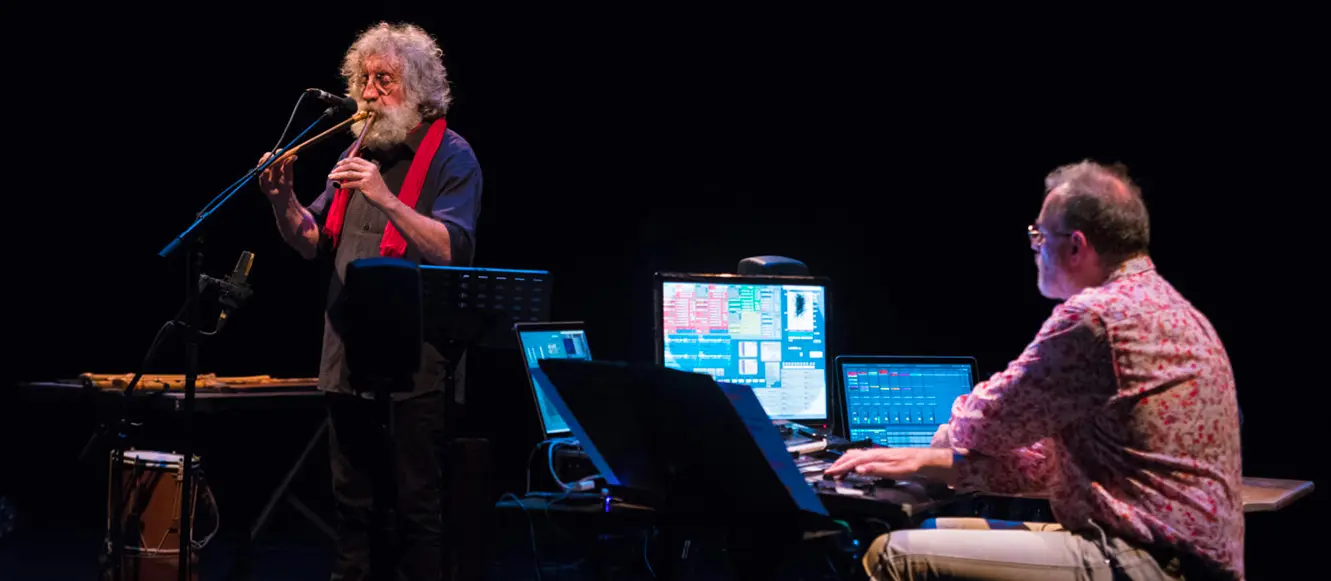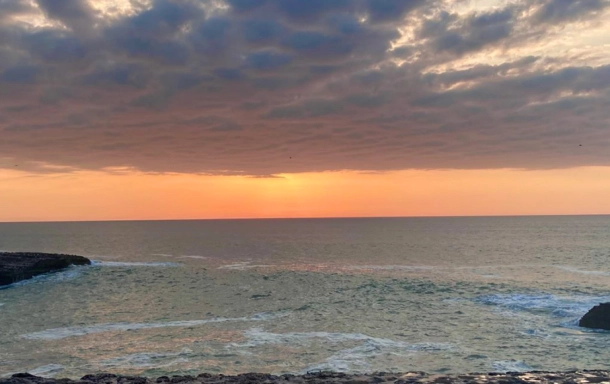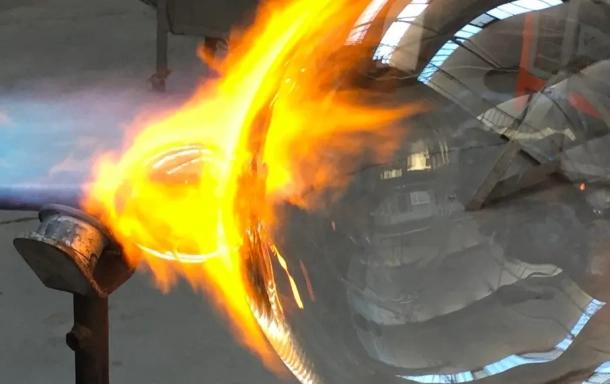Electro-Aimant is a project born from the meeting between a musician committed to the renewal of traditional music and a composer developing his practice of musical creation, particularly through work with artists working in music from the oral tradition (Burkina Faso, Cameroon, Argentina, Vietnam, Indonesia, Martinique)
It is in this way that this project updates the musical exchanges between orality and improvisation, reinventing an improbable imaginary world, at the crossroads of traditional and digital lutheries.
This duo is an experiment that can welcome other musicians during workshops or accompany shows and performances. This ability to adapt is due to the commitment of these two musicians who, coming from radically opposed backgrounds, have been able to listen to each other, observe each other and meet.
Miquèu Montanaro's music is quite singular, hybrid, from a stylistic point of view. Transversal, unclassifiable, it could be described as "permeable" music, being at the meeting point of several universes: improvised music, traditional music, jazz, contemporary music, classical music and contemporary music. It was after hearing Montanaro integrate improvisations with Alexandros Markéas' composition(Légendes) that Christian Sebille wanted to try a confrontation.
Montanaro was able to hear the work of Christian Sebille around the poetry of Daniel Biga accompanied by Patrick Vaillant and Alex Grillo; this way of enriching, distorting, working and reworking the sound reinforced him in the idea of distorting a little more the image of the galoubet-tambourine. Here Montanaro lends himself to the game of the distorting mirror, filled with all the previous experiences of Imaginogenic music, from free jazz, contemporary music to total improvisation.
Christian Sebille and Miquèu Montanaro are going to push back the limits of instruments anchored in Provence and whose history is unceasingly in renewal by a ceaseless play between the raw material, its transformation, its deconstruction and its reconstruction. The galoubet-tambourine, considered traditional and popular, is in fact a very technical instrument between a flute with very precise melodies and a tambourine that performs two functions: rhythmic and drone. Christian Sebille's computers will explore this profusion of sounds to propose a new and unheard-of dialogue between these different techniques. The two composers will meet, each with their own lutherie and culture, to bring a new sound to the compositions, decompositions and re-compositions of the tradition, and to invent a new form of dialogue.
Delegated production
GMEM - Centre national de création musicale
Coproduction
Compagnie Montanaro
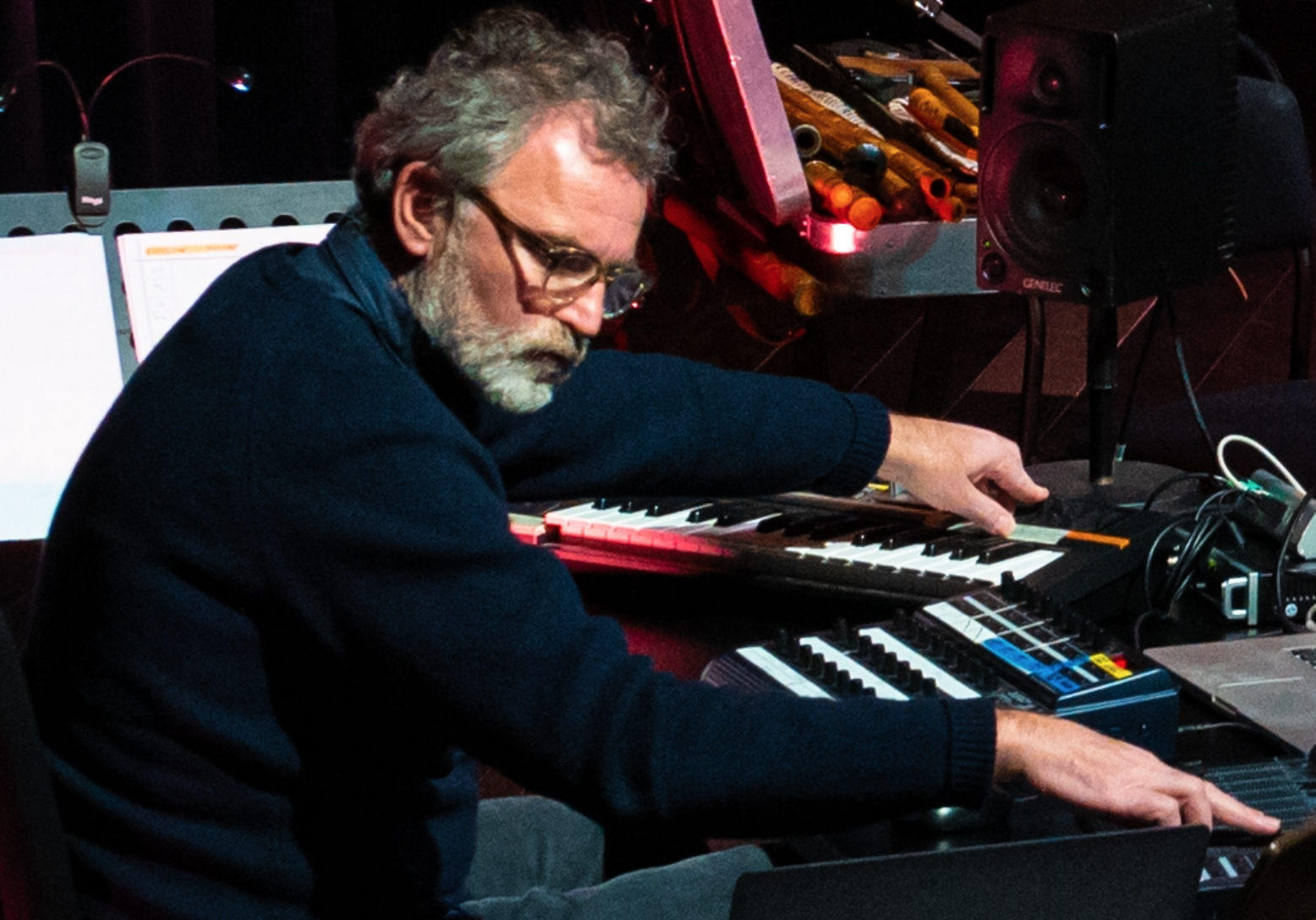
Christian Sebille is a composer and artistic director of the GMEM in Marseille. He works on the realization of sound installations in situ, in particular within the framework of a series entitled Miniatures. The place of sound capture is linked to the place of its diffusion in a ratio of space compression (reduction of the diffusion space in relation to the capture space) and temporal reduction (ratio of capture time / diffusion time). Moreover, he works on the concrete sound and on the capacity of the material to be in itself its own diffuser (the instrumental object). The radiation of the material and the movement of the object (sound) play with each other.
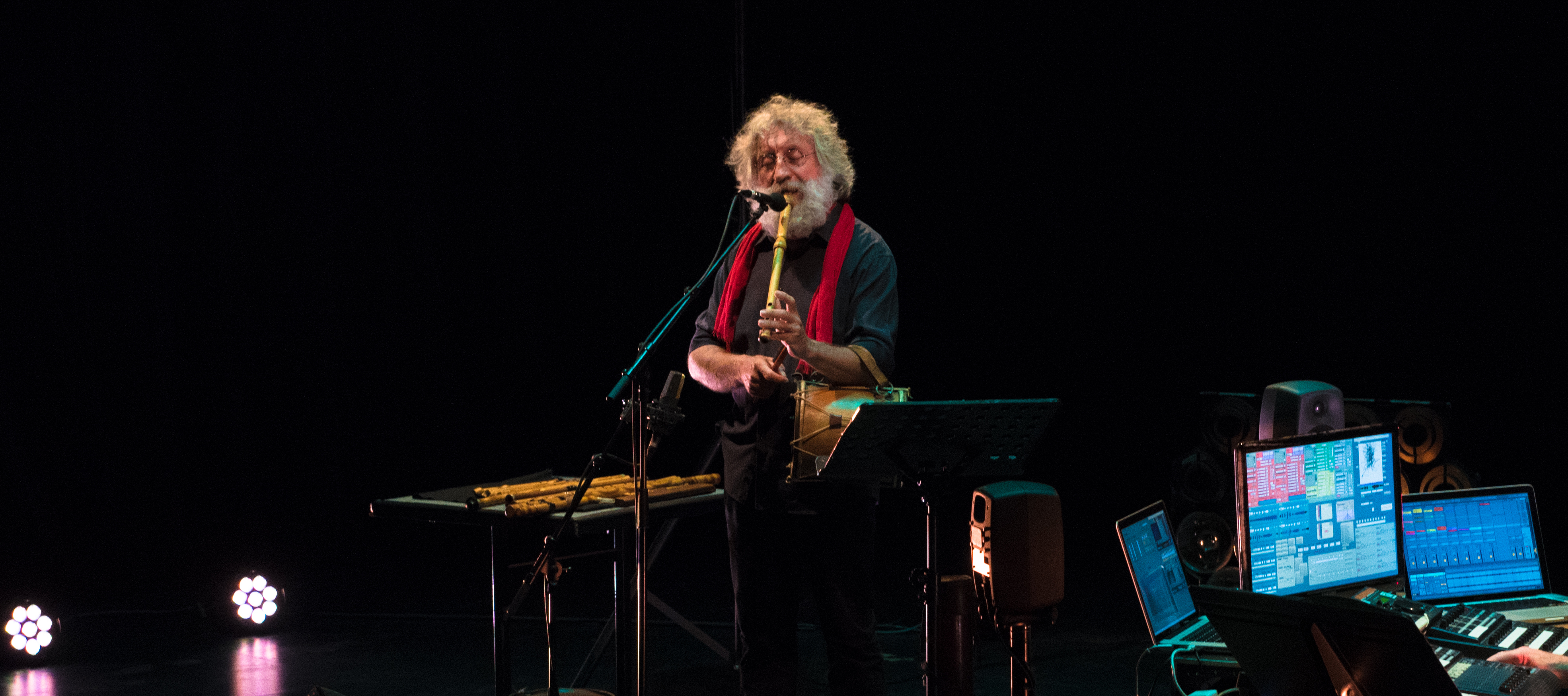
Born in Hyères in 1955. Miquèu Montanaro is a composer and multi-instrumentalist musician, with more than 40 albums to his credit. His main instrument is the galoubet tambourin (traditional Provencal instrument composed of a flute-tambourine duo).
Miquèu Montanaro
galoubet-tambourine, flutes
Christian Sebille
electroacoustic
IN 2021
11 september 2021 at 18h00 - L'Agora - Théâtre extérieur Fort Gibron, Correns (83)
as part of the 20th anniversary of the Baltazar Montanaro company
25 june 2021 at 19h30 - Jardin de la Maison du Parc du Lubéron - Apt, Lubéron (84)
as part of the Festival Le Son des Peuples #2
IN 2019
July 13, 2019 at 22:30 - Centre National de Création Musicale VOCE - Pigna, Corsica (20)
as part of the Festivoce festival

